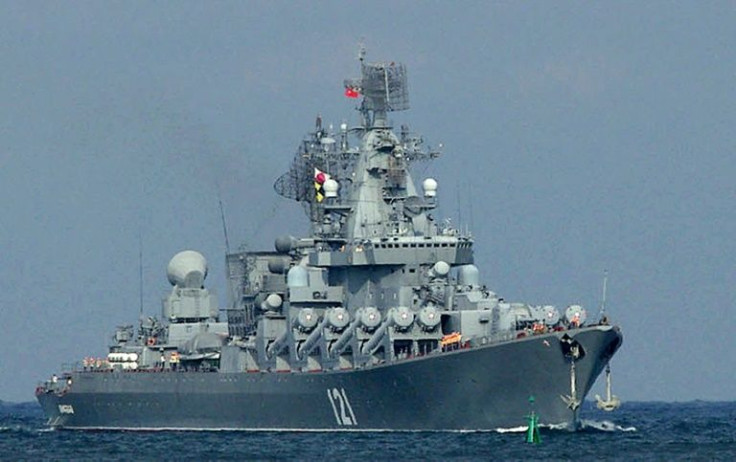Will Ukraine Force Russia's Once Mighty Black Sea Fleet Into Action?
KEY POINTS
- Constant threat of Ukrainian attack has confined Russia's Black Sea fleet to port
- Ukrainian forces used improvised small indigenous drones as a formidable weapon
- Kyiv has warned that Russian warships and submarines deployed in the Black Sea may be preparing to launch a new wave of attacks
Ten months into the war in Ukraine, while the Russian Navy continues to be a dominant force in the Black Sea, its warships remain confined to port fearing stealth attack by Ukrainian sea mines, anti-ship missiles and drones.
From the sinking of the flagship cruiser, Moskva in April to the drone attacks carried out on Oct. 29, Ukrainian forces have compelled Moscow to reshape its naval operations in the Black Sea to play a very low-key role in the ongoing war.
Not only have Ukrainian forces used improvised small consumer drones as a formidable weapon against Russia, but they have also developed small explosive-laden drone boats to attack the Black Sea fleet naval ships.
Ukraine is creating the world's first Fleet of Naval Drones — so, we are launching our biggest fundraiser yet🔥It will protect the🇺🇦waters, prevent cities from being struck by missiles, and also help unlock corridors for civilian ships that transport grain. #FleetOfNavalDrones pic.twitter.com/9V07vqZXkl
— U24 (@U24_gov_ua) November 11, 2022
With the harsh Ukrainian winter setting in, defense analyst HI Sutton writing in the Naval News looked at the scenarios that could emerge in the coming months and reshape the role of Russia's once mighty and feared Black Sea fleet.
The first likely scenario, according to Sutton, is for the Russian navy to conduct a blockade of the Ukrainian ports, similar to the one declared by Moscow during the initial days of the conflict when merchant ships belonging to third countries were attacked.
Although the blockade was lifted following negotiations, Moscow has used its threat as leverage against Kyiv to stop attacks on Russian warships and its naval base at Sevastopol.
While implementing a stop-and-search type blockade will prove dangerous for Russian naval forces, Sutton points out that Moscow may consider covert means of sabotage, such as limpet mines in Sevastopol or sea mines outside the harbor to limit its wider political consequences.
According to the analyst, a second scenario emerges in case Kyiv decides to advance further down south in an attempt to retake Crimea. Ukraine has repeatedly asserted that it will restore rule over Crimea, which was illegally annexed by Russia in 2014. With Washington believing that Ukraine has the military capability to do so, Western observers expect the war to retake Crimea will be bloody and difficult.
Sutton argues that in case Ukraine decides to push into Crimea, the Russian navy will then be forced to accept the risk and provide direct support to its troops both in terms of fire support and supplies.
However, attempting to do so will further expose Russian warships to Ukrainian drones and land-based short-range missiles like the British-supplied Brimstone while moving further into the sea could lead them to face Ukraine's Harpoon missiles, Sutton adds.
The third scenario, in which Sutton sees a direct involvement of the Black Sea fleet, is if Russia's naval base at Sevastopol comes under a direct attack from Ukrainian forces.
With Ukraine obtaining more or better weapons, Sutton notes that it will be a serious concern for Moscow. In such a scenario, Russia will be forced to abandon the base and move ships to small bases in Crimea or the already crowded Black Sea ports.
Despite the present low-key role of the once mighty Russian fleet, Ukraine has warned that Russian warships and submarines deployed in the Black Sea add to fears that Moscow may be preparing to launch a new massive wave of attacks on Ukraine.

© Copyright IBTimes 2024. All rights reserved.






















